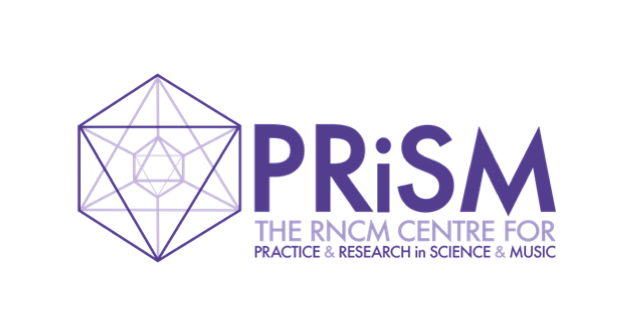George Lewis Residency | RNCM Musicians and an Enhanced Voyager
Composer George Lewis is collaborating with RNCM PRiSM and RNCM students on a new work that incorporates new Artificial Intelligence tools
18 March 2022
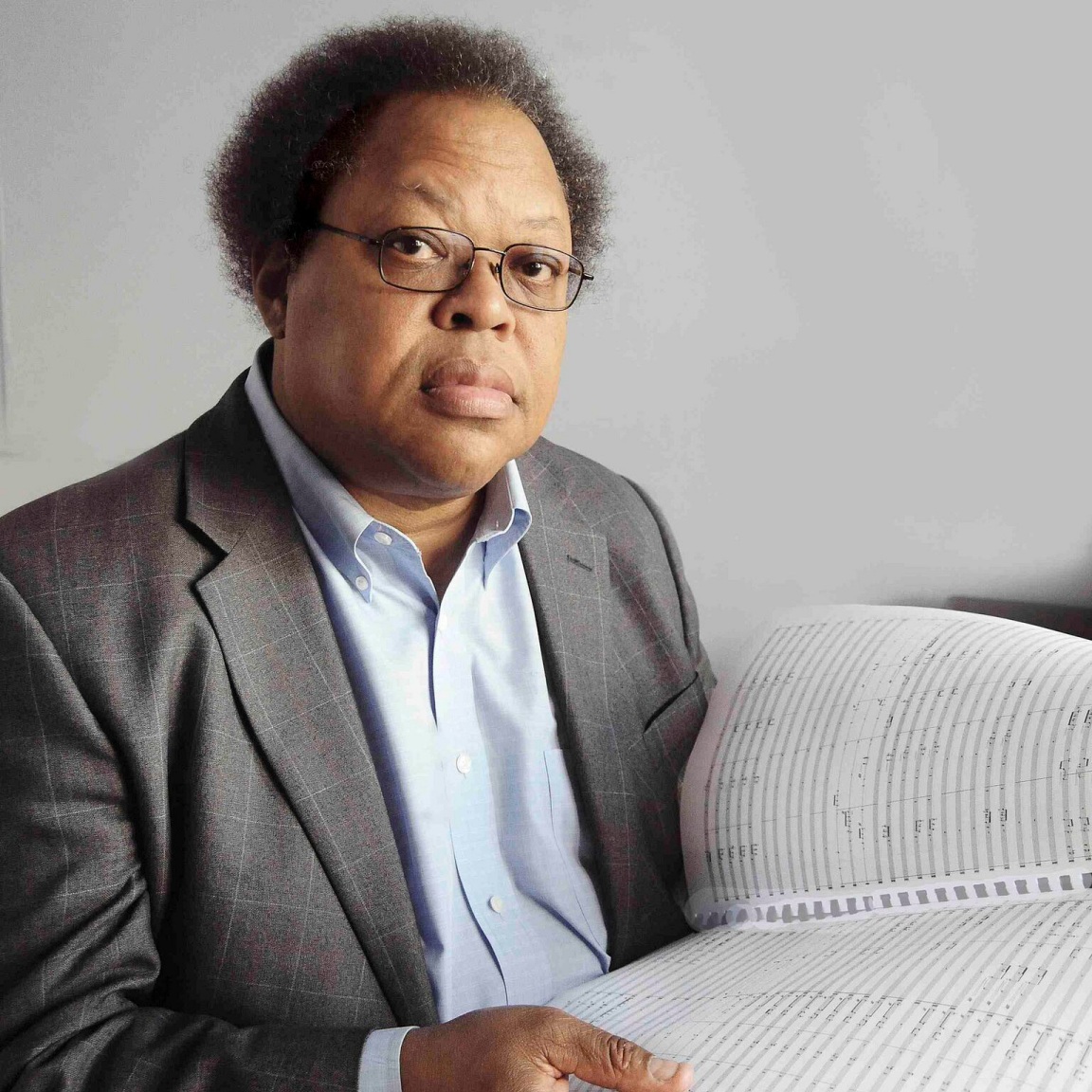 Professor George Lewis (RNCM PRiSM Artist in Residence & Edwin H. Case Professor of American Music, Composition & Historical Musicology, Columbia University) is known internationally as one of the pioneers in the field of computer-driven, interactive compositions and performance practice.
Professor George Lewis (RNCM PRiSM Artist in Residence & Edwin H. Case Professor of American Music, Composition & Historical Musicology, Columbia University) is known internationally as one of the pioneers in the field of computer-driven, interactive compositions and performance practice.
He first developed the Voyager system between 1985 and 1987 at the Studio for Elektro-Instrumemtale Muziek (STEIM) in Amsterdam, building on the earlier Rainbow Family system he developed and premiered at IRCAM (Institute for Research and Coordination in Acoustics/Music) in Paris between 1982 and 1984.
Widely referred to as the ‘virtual improvising pianist’, the Voyager system analyses aspects of the musical environment in real time, using that analysis to guide an automatic ‘improvisation’ program that generates both complex responses to input and independent behaviour that arises from its own internal processes. It is one of Lewis’ most frequently presented works, and a secondary scientific, musicological, and even philosophical literature has sprung up around it over the years.
What I have found at PRiSM is a brilliant team of technologist-artists who are thinking in very vibrant and clear-eyed ways about the futures of the technological arts — not only in music, but music’s wider engagement with the arts and the world surrounding them.
In fact, everyone I have encountered at the RNCM has generously shared their time, expertise, and ideas with me. I will be making several visits to the RNCM between now and the end of November, when the work is to be premiered here.
I am very much looking forward to the ongoing process of creating this new work and engaging with the PRiSM team.
Professor George Lewis, Edwin H. Case Professor of American Music, Composition & Historical Musicology, Columbia University
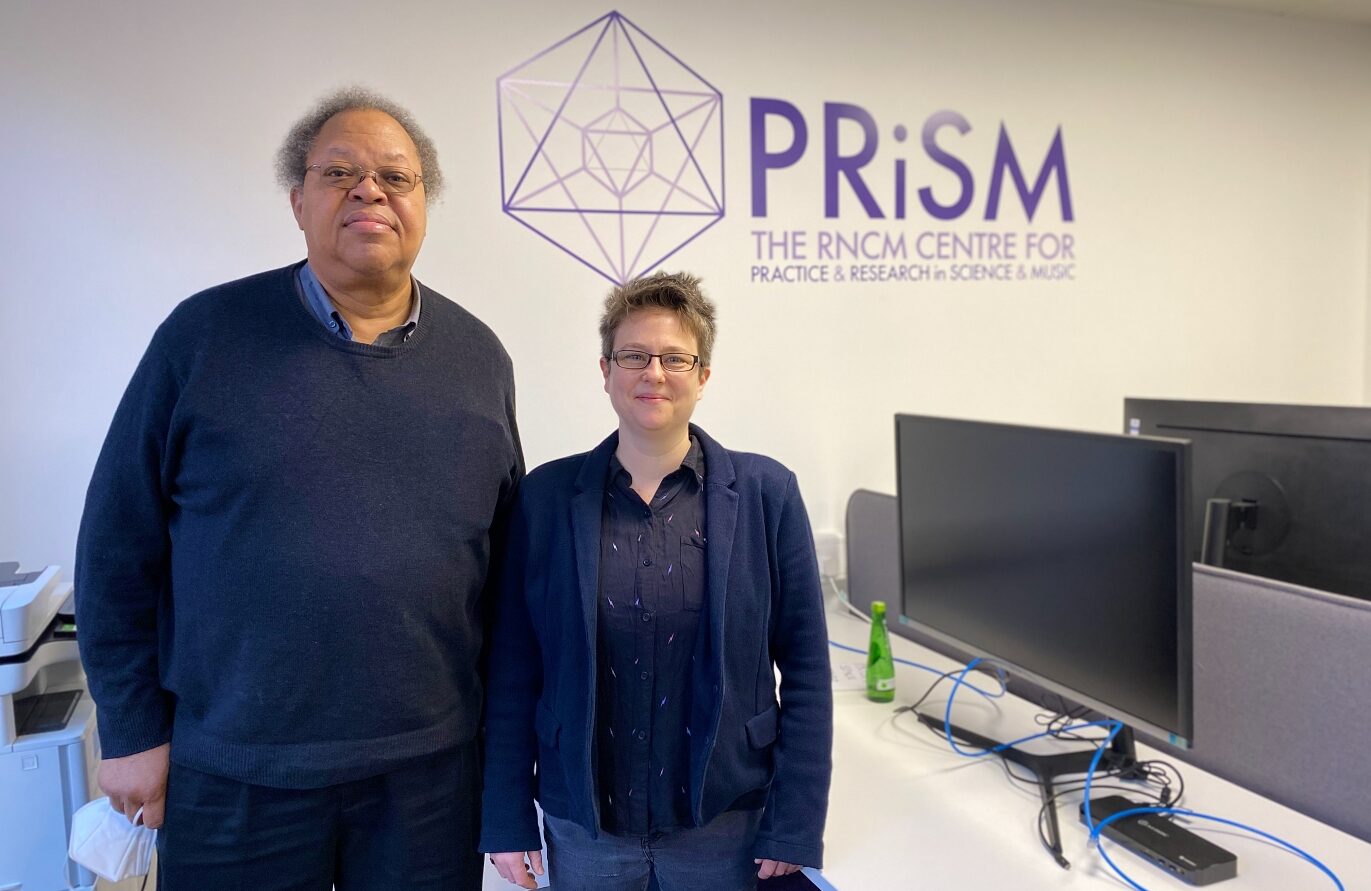
Professor George Lewis, with Professor Emily Howard (Director RNCM PRiSM)
This collaboration, which commenced with Professor Lewis’ RNCM PRiSM residency in February 2022, will see him work closely with the PRiSM Team, PRiSM Doctoral Researcher tubist Jack Adler-McKean, and RNCM student performers Leah Wing (flute), Robyn Saunders (clarinet), Cameron Chin-See (trumpet), and Ross McDonnell (trombone), as well as New York-based composer and software engineer Damon Holzborn, who has been involved with the Voyager project since he translated the software from the virtual orchestra version to the current pianist version in 2004.
The collaboration will revolve around an ‘extension’ to Voyager’s ‘listening’ capabilities through the deployment of the newest generation of Artificial Intelligence technologies.
There are two main aims of this collaborative research project:
- to develop an enhanced version of the Voyager system, allowing it to recognise generalised classes of gestural musical features;
- to compose a new chamber work for flute, clarinet, trumpet, trombone, and tuba, which features the use of this enhanced Voyager, to be premiered at the RNCM in November 2022.
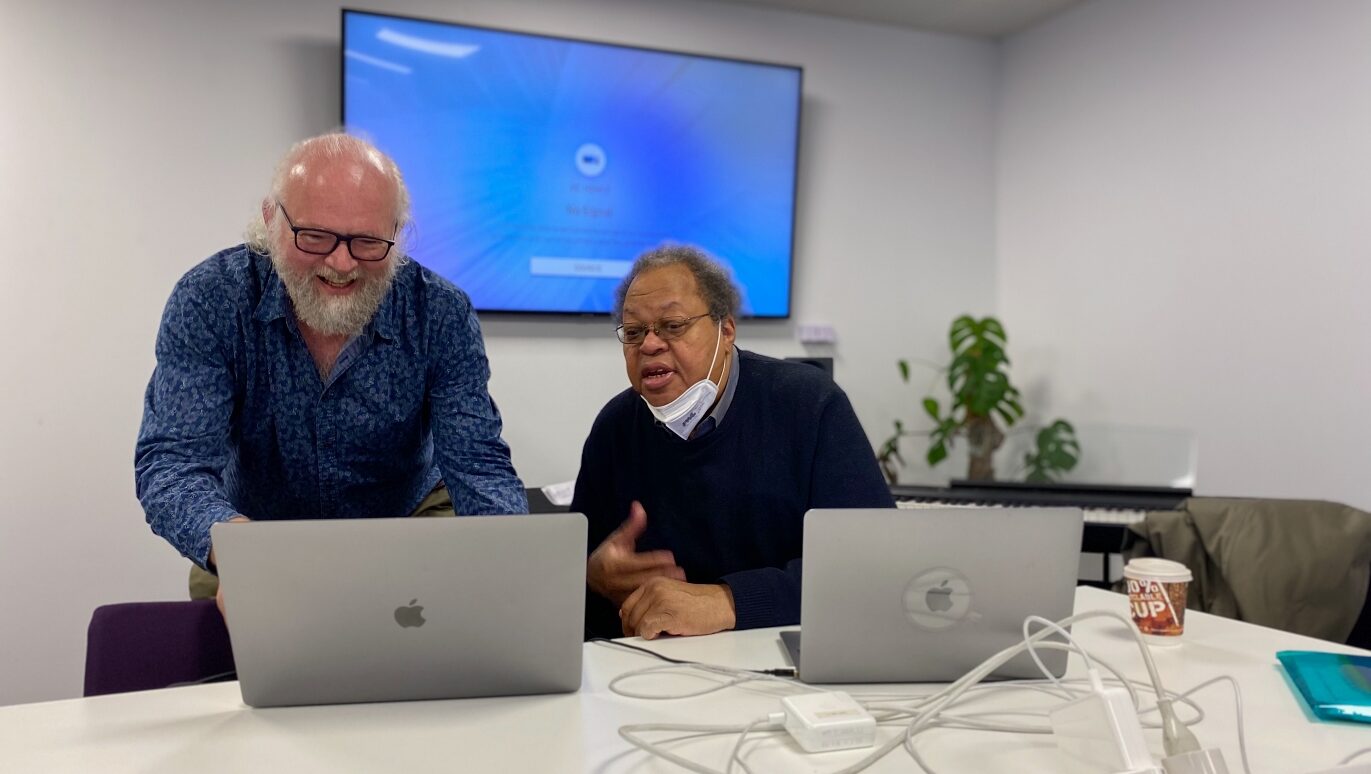
Professor George Lewis working with Professor David De Roure (Technical Director, RNCM PRiSM)
Professor Lewis tells us:
“PRiSM has brought together an important brain trust to become one of the most innovative centres today developing these technologies.
Even so, I am told by the team that there is little precedent for using AI for music in this way.
We have been working together over Zoom and email since early 2021, but our face-to-face meetings recently have quickly raised the bar on our understanding that we are in an excellent position to create wholly new ways of using these technologies for interactive media and music.”
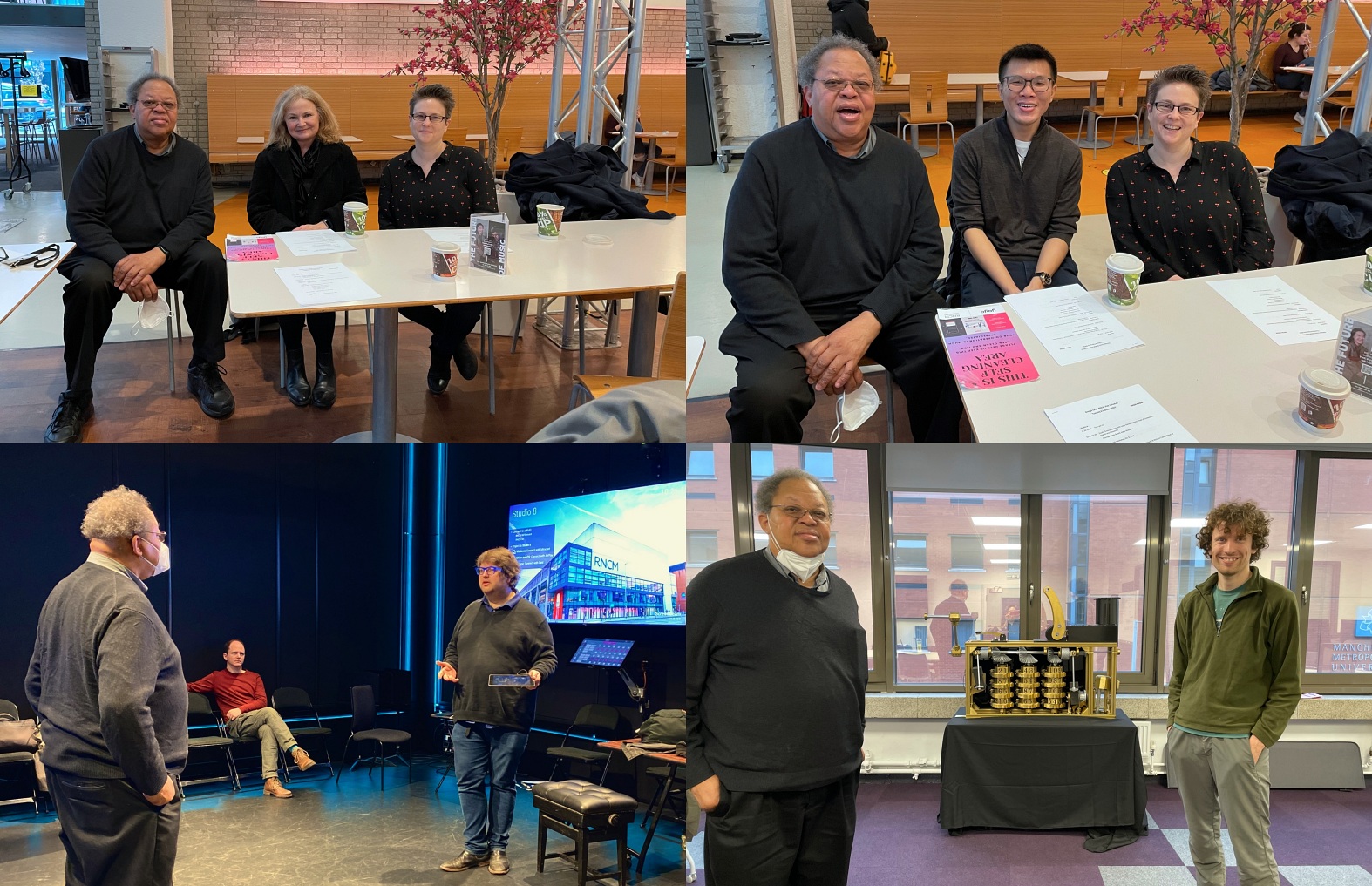
Top left: Meeting with Professor Emily Howard and Professor Barbara Kelly (Director, RNCM Research);
Top right: Meeting with Professor Emily Howard and Dr Bofan Ma (RNCM PRiSM Post-Doctoral Research Associate);
Bottom left: Introduction to RNCM’s newly installed flagship high-tech chamber room Studio 8, with Dr Larry Goves (Deputy Head of Composition, Digital and Research);
Bottom right: Meeting with RNCM PRiSM Doctoral Researcher Robert Laidlow.
It was a joy to spend a full week with George Lewis at the RNCM. Time flew as George debated music, AI, technology and many other subjects 24/7 with RNCM students and PRiSM colleagues alike. His excitement to be pushing the cutting-edge of technological development within music was abundant, as was his graciousness and his dedication to working alongside us. We look forward to his return. Thank you George!
Professor Emily Howard, Director RNCM PRiSM
George’s first-hand knowledge of music and AI over four decades is extraordinary, and we are so grateful for his generosity in sharing his experience and insights. But what is equally exciting about this collaboration is the insights that George brings to our discussions about future music, formative in our evolving PRiSM approach.Professor David De Roure, Technical Director, RNCM PRiSM
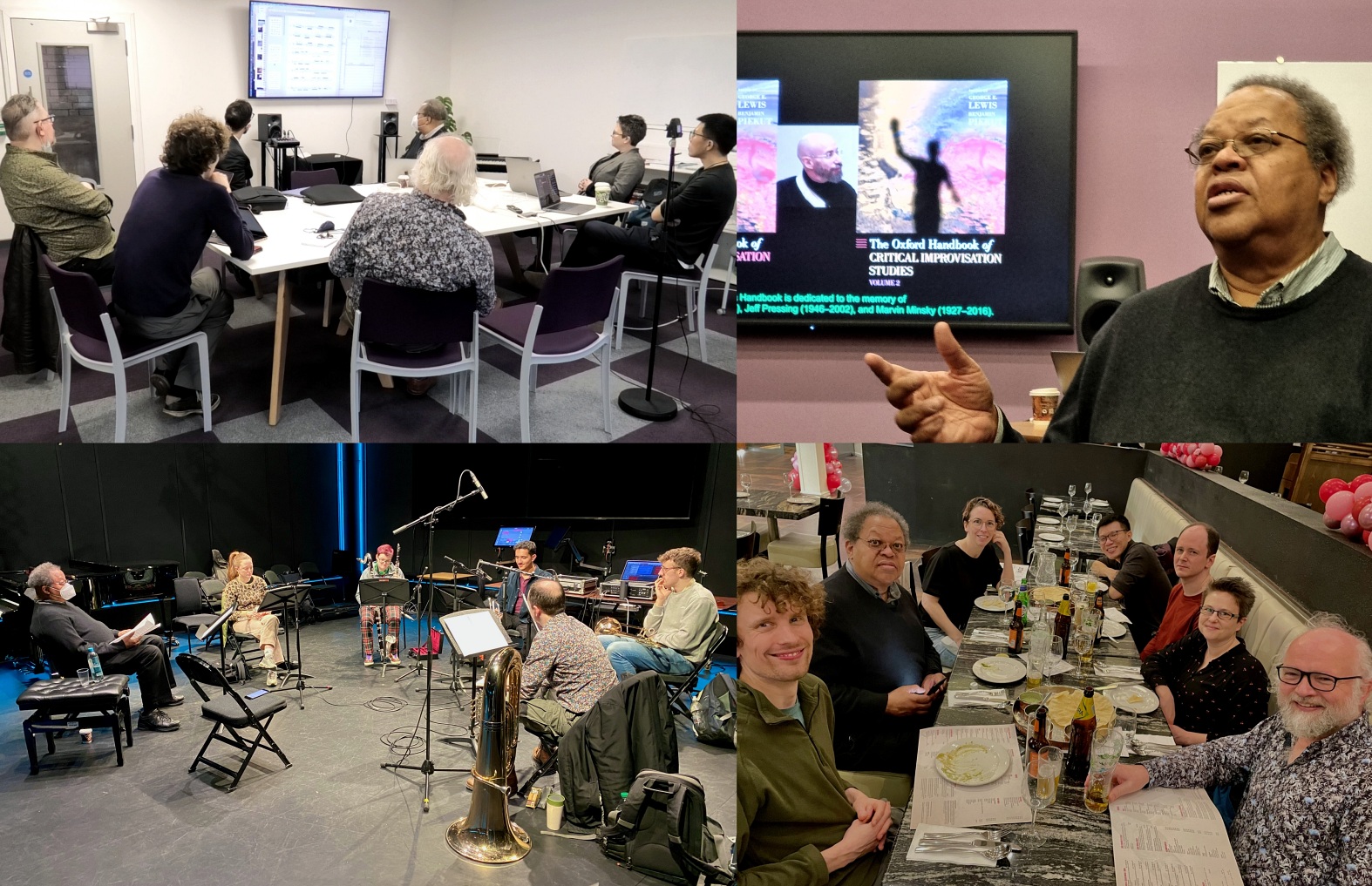
Top left: Meeting with PRiSM People (Professor Emily Howard, Professor David De Roure, Dr Sam Salem, Dr Christopher Melen, Dr Bofan Ma, Robert Laidlow);
Top right: Professor George Lewis giving a seminar to RNCM School of Composition students;
Bottom left: Workshop with (from right to left) Jack Adler-McKean, Ross McDonnell, Cameron Chin-See, Robyn Saunders, Leah Wing;
Bottom right: Dinner with PRiSM People (Professor David De Roure, Professor Emily Howard, Jack Adler-McKean, Dr Bofan Ma, Zakiya Leeming, Robert Laidlow).

